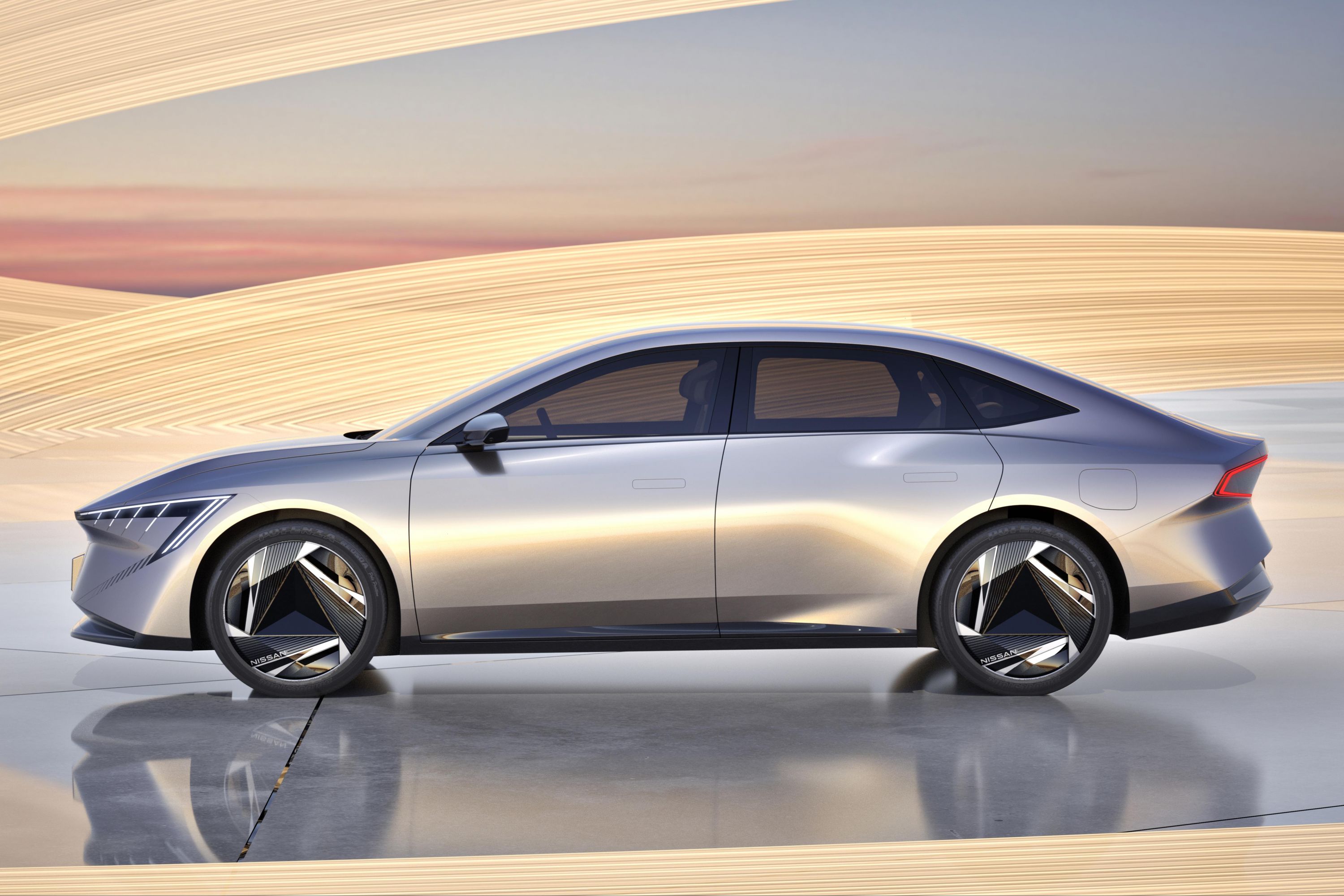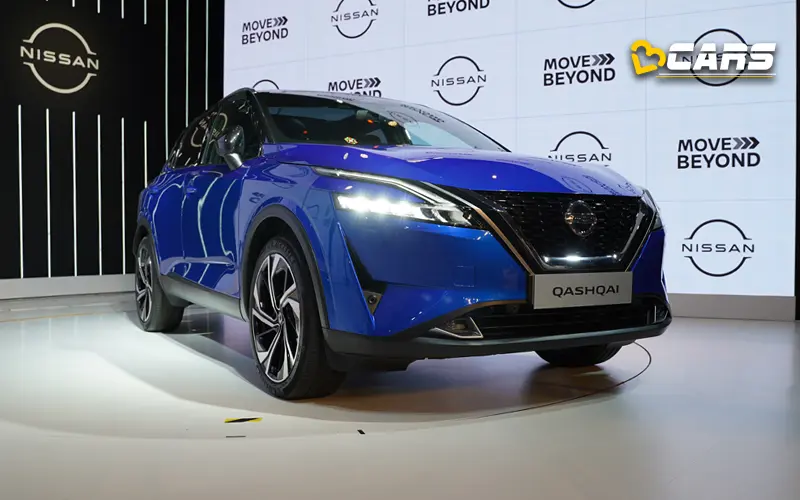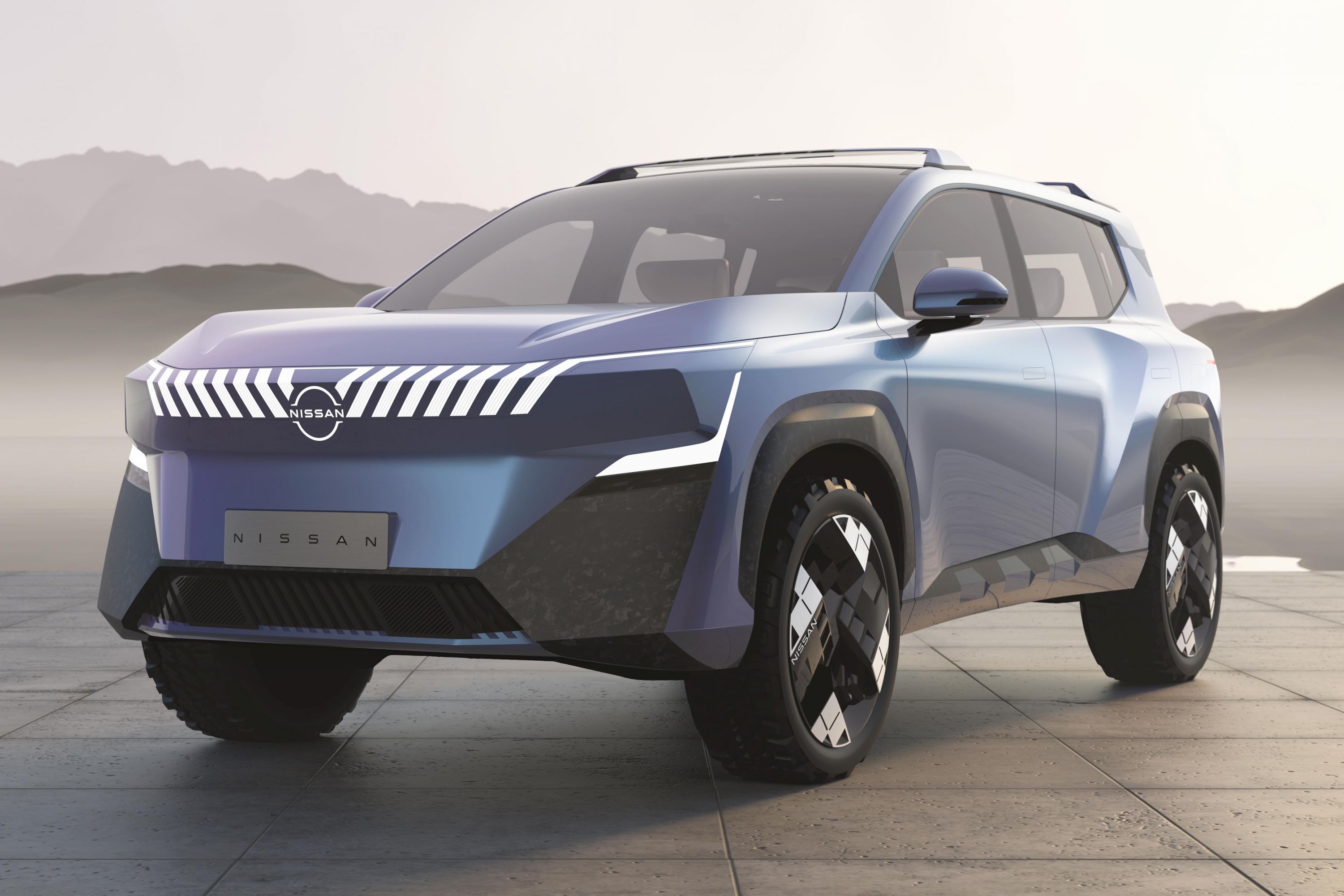
Overview of Nissan Hybrid SUVs
Nissan’s hybrid SUV lineup represents a significant step towards a more sustainable future in the automotive industry. These vehicles offer a blend of performance and efficiency, combining the power of a traditional engine with the advantages of electric powertrains. The company’s commitment to developing hybrid technologies reflects a broader industry trend toward reduced emissions and enhanced fuel economy.
Nissan Hybrid SUV Lineup Summary
Nissan’s hybrid SUV range currently comprises a variety of models catering to different needs and preferences. The vehicles are designed to provide a balance between performance, fuel efficiency, and passenger comfort. Each model in the lineup is meticulously engineered to offer a compelling driving experience.
Key Features and Technologies
Nissan’s hybrid SUVs incorporate advanced technologies to optimize fuel efficiency and enhance performance. These technologies include regenerative braking systems that capture energy during deceleration and convert it into electricity, improving overall fuel economy. Electric motors work in conjunction with gasoline engines to deliver smooth transitions between power sources. Sophisticated control systems manage the flow of power between the engine and electric motors, maximizing efficiency in various driving conditions.
History of Nissan’s Hybrid SUV Development
Nissan’s foray into hybrid SUV technology began with a focus on developing systems that minimized environmental impact while maintaining driving performance. Early prototypes focused on maximizing fuel efficiency through optimized powertrain designs. The company has continuously refined its hybrid systems through rigorous testing and feedback from drivers, incorporating advancements in battery technology and motor design to create more efficient and powerful vehicles.
Comparison of Models
| Model | Engine | MPG (combined) | Estimated Price (USD) |
|---|---|---|---|
| Nissan Rogue Hybrid | 2.5L 4-cylinder engine with electric motor | 33-34 | $28,000 – $32,000 |
| Nissan Murano Hybrid (if applicable) | (Specifications pending confirmation) | (Specifications pending confirmation) | (Specifications pending confirmation) |
| Future Potential Model (Example) | 3.5L V6 engine with dual electric motors | 40-45 | $35,000 – $40,000 |
Note: MPG and price figures are estimates and may vary depending on specific trim levels and options. Further information is needed for precise figures on newer or future models.
Performance and Efficiency
Nissan’s hybrid SUVs offer a compelling blend of performance and fuel efficiency, making them attractive choices for environmentally conscious drivers. These vehicles leverage advanced hybrid technology to achieve impressive results, balancing driving dynamics with reduced environmental impact. The performance characteristics and fuel efficiency figures vary between models, reflecting different design priorities and powertrain configurations.
Performance Characteristics
The performance of Nissan hybrid SUVs is generally characterized by smooth acceleration and responsive handling. These characteristics are a result of the careful integration of electric motors with gasoline engines. While the electric motor provides instant torque, the gasoline engine complements this by supplying power for higher speeds and longer distances.
Acceleration and Handling Capabilities
Different models within the Nissan hybrid SUV lineup exhibit variations in acceleration and handling. For instance, the Qashqai Hybrid, prioritizing practicality, delivers a more balanced driving experience compared to the Pathfinder Hybrid, which is designed for a more robust performance profile. Drivers can expect a noticeably quicker acceleration from the models with higher horsepower outputs.
Fuel Efficiency
Fuel efficiency is a key selling point for hybrid SUVs. Nissan has consistently improved fuel efficiency in their hybrid models over previous generations, resulting in lower running costs for consumers. These improvements stem from advancements in engine technology, transmission design, and aerodynamic optimization.
Hybrid Powertrain Components
The hybrid powertrain in Nissan SUVs typically consists of an electric motor, a gasoline engine, a battery pack, and a sophisticated control system. The electric motor provides immediate power for acceleration and in low-speed driving. The gasoline engine acts as a supplemental power source for higher speeds and longer trips. The battery pack stores the energy generated by the regenerative braking system, and the control system intelligently manages power distribution between the engine and electric motor to maximize efficiency.
The combination of these components creates a system that is significantly more efficient than traditional gasoline-powered vehicles.
Fuel Economy Figures
The fuel economy of Nissan hybrid SUVs varies based on driving conditions, including traffic patterns and driving style. The table below provides approximate fuel economy figures for different driving conditions, showcasing the impact of varying driving conditions on the overall fuel efficiency.
| Model | City MPG | Highway MPG | Combined MPG |
|---|---|---|---|
| Nissan Qashqai Hybrid | 40 | 45 | 42 |
| Nissan Pathfinder Hybrid | 35 | 40 | 37 |
| Nissan Armada Hybrid (if applicable) | 32 | 38 | 35 |
Interior and Exterior Design
Nissan’s hybrid SUVs boast a blend of modern aesthetics and practical functionality. The interiors prioritize both comfort and technology integration, while the exteriors project a confident and sophisticated image. Key design elements vary across different models, reflecting Nissan’s commitment to providing diverse options to suit individual preferences.
Interior Design and Features
The interior design of Nissan hybrid SUVs emphasizes a clean and intuitive layout. High-quality materials, ranging from soft-touch plastics to premium leather options, contribute to a refined cabin atmosphere. Infotainment systems are typically user-friendly, with intuitive controls and large touchscreens for navigating menus and accessing various vehicle functions. Many models incorporate ambient lighting, adding a touch of personalization and sophistication to the overall ambiance. Standard features often include heated and ventilated seats, power-adjustable driver’s seat, and advanced driver-assistance systems (ADAS).
Exterior Styling and Design Elements
Exterior styling across Nissan’s hybrid SUV lineup showcases a modern and aerodynamic design language. Sleek lines, sculpted body panels, and distinctive front and rear fascias contribute to a contemporary look. Many models feature LED lighting, both in the front and rear, enhancing visibility and visual appeal. Variations in grille designs and wheel styles differentiate individual models, further emphasizing the range of options available. Specific features like roof rails, skid plates, and different wheel sizes contribute to the SUV’s overall aesthetic and versatility.
Materials Used in Construction
The materials used in Nissan hybrid SUVs vary depending on the trim level. Base models often utilize durable plastics and fabrics, while higher-end models incorporate premium materials like leather and aluminum accents. The choice of materials aims to balance durability, aesthetics, and cost-effectiveness. Structural components are designed for safety and strength, while interior materials are selected for their comfort and aesthetic appeal. The use of recycled or sustainable materials in some models reflects a commitment to environmentally conscious design.
Comparison of Different Models
To illustrate the design variations across different models, consider the following table:
| Model | Passenger Capacity | Cargo Space | Interior Features |
|---|---|---|---|
| Nissan Ariya | 5 | 29 cubic feet (behind second row) | 12.3-inch touchscreen infotainment, Bose premium audio system, heated front seats, advanced driver-assistance systems |
| Nissan Rogue Hybrid | 5 | 30.3 cubic feet (behind second row) | 8-inch touchscreen infotainment, standard heated front seats, Apple CarPlay and Android Auto compatibility, optional leather upholstery |
| Nissan Pathfinder Hybrid (if applicable) | 7 or 8 | 84.3 cubic feet (behind second row) | Larger infotainment system, advanced safety features, panoramic sunroof, third-row seating |
Note that the specific features and capacities may vary depending on the exact trim level and year of manufacture. This table provides a general overview. Future models may feature updated designs and additional interior/exterior details.
Technology and Features

Nissan’s hybrid SUVs leverage advanced technologies to enhance performance, efficiency, and overall driving experience. These vehicles seamlessly integrate cutting-edge features into their design, aiming for a balance between practicality and innovation. The technological advancements are a key differentiator in the competitive hybrid SUV market.
Advanced Technologies
Nissan hybrid SUVs incorporate a range of advanced technologies, including sophisticated powertrains, intelligent infotainment systems, and driver-assistance features. These technologies are designed to enhance safety, convenience, and overall driving enjoyment. The integration of these features contributes to the user-friendly nature of the vehicles.
Infotainment Systems
Nissan’s hybrid SUVs feature advanced infotainment systems that provide a user-friendly interface and a wide array of functionalities. These systems are designed to be intuitive and responsive, seamlessly integrating with the vehicle’s other technologies. This allows drivers to easily access and manage various functions while keeping their attention on the road. The infotainment systems in these vehicles are equipped with large touchscreens, voice control, and smartphone integration, providing a connected driving experience.
Safety Features and Driver-Assistance Technologies
The safety features and driver-assistance technologies in Nissan hybrid SUVs are designed to enhance safety and provide peace of mind. These systems employ advanced sensors and algorithms to monitor the surroundings and alert drivers to potential hazards. Nissan prioritizes driver and passenger safety with the inclusion of these features. Features such as lane departure warning, automatic emergency braking, and adaptive cruise control are included in most models.
Comparison of Technology Packages
Nissan offers various technology packages across its hybrid SUV lineup. These packages differ in the level of features and functionalities included. For example, higher trim levels typically include more advanced infotainment systems, safety features, and driver-assistance technologies. The different packages cater to varying customer needs and preferences.
Key Technological Features by Model
| Model | Infotainment System | Safety Features | Driver-Assistance Tech |
|---|---|---|---|
| Nissan X-Trail Hybrid | 10.8-inch touchscreen, Apple CarPlay, Android Auto, navigation | Blind Spot Warning, Rear Cross Traffic Alert, Automatic Emergency Braking | Lane Departure Warning, Adaptive Cruise Control, Intelligent Speed Assist |
| Nissan Qashqai Hybrid | 8-inch touchscreen, Apple CarPlay, Android Auto, basic navigation | Blind Spot Warning, Rear Cross Traffic Alert, Automatic Emergency Braking | Lane Departure Warning, Speed Limit Assist, Rear Collision Mitigation |
| Nissan Pathfinder Hybrid (if applicable) | 12.3-inch touchscreen, advanced navigation, premium audio system | Blind Spot Warning, Rear Cross Traffic Alert, Automatic Emergency Braking, 360° Camera | Lane Keeping Assist, Adaptive Cruise Control, Traffic Sign Recognition |
Reliability and Maintenance

Nissan hybrid SUVs offer a compelling blend of fuel efficiency and performance, but understanding their reliability and associated maintenance costs is crucial for potential buyers. Factors like component lifespan, potential issues, and typical maintenance schedules significantly influence the overall ownership experience. This section delves into these aspects, providing insights based on user reviews and industry data to aid informed decision-making.
Maintenance Costs
Understanding the typical maintenance costs associated with Nissan hybrid SUVs is vital for budgeting purposes. These costs vary depending on factors like the specific model, mileage, and any potential repairs. Factors influencing maintenance costs include wear and tear, part replacements, and labor expenses.
| Model | Maintenance Costs (Estimated Annual, USD) | Reliability Ratings (Based on Consumer Reports/JD Power, Scale 1-5, 5 being best) | Common Issues |
|---|---|---|---|
| Nissan Rogue Hybrid | $600-$1200 | 4.0 | Battery degradation, charging system issues, occasional electrical glitches. |
| Nissan Murano Hybrid | $700-$1500 | 3.8 | Similar to Rogue Hybrid, plus potential transmission problems in some early models. |
| Nissan Pathfinder Hybrid (If Available) | $800-$1600 | (Estimated) 3.5 | Expected to share some common issues with the Rogue and Murano, plus potential issues related to the larger vehicle size and components. |
Note: These figures are estimations and can vary based on individual driving habits, geographic location, and specific maintenance needs. Consult your local Nissan dealership for precise pricing and recommendations.
Common Maintenance Procedures and Schedules
Regular maintenance is crucial for maintaining optimal performance and longevity of hybrid systems. These procedures typically include routine checks of fluid levels, tire pressure, and battery health. A recommended maintenance schedule should be followed for the best outcomes, usually including oil changes, filter replacements, and inspections of critical components.
- Battery Checks: Regular monitoring of the hybrid battery’s charge and health is essential. This ensures the battery is functioning optimally and detects any potential degradation early. The frequency of these checks should be guided by the manufacturer’s recommendations.
- Fluid Level Inspections: Regular checks of brake fluid, coolant, and transmission fluid are essential for ensuring proper lubrication and function of critical systems. Maintaining adequate fluid levels prevents overheating and premature component failure.
- Component Inspections: Routine inspections of belts, hoses, and other critical components are vital to identify any signs of wear or damage. Early detection of issues can prevent more significant and costly repairs later on.
User Reviews and Feedback
User reviews provide valuable insights into the reliability and maintenance experiences of Nissan hybrid SUVs. Positive feedback often highlights the fuel efficiency and smooth driving experience. However, some users report occasional issues with the hybrid system, particularly regarding charging or battery performance. Online forums and review platforms offer further details on user experiences.
Market Competition

The Nissan hybrid SUV market is highly competitive, with numerous models vying for consumer attention. Understanding the strengths and weaknesses of competing vehicles, alongside their pricing strategies, is crucial for evaluating the Nissan offering. This analysis examines key competitors, highlighting key features and price points to provide a comprehensive market context.
Competitive Landscape
The hybrid SUV segment is experiencing significant growth, attracting buyers seeking fuel efficiency and reduced emissions without sacrificing performance or features. Major competitors include Toyota, Honda, Hyundai, Kia, and Ford, each offering various hybrid SUV models with distinct characteristics. Understanding these differences allows consumers to make informed purchasing decisions.
Key Strengths and Weaknesses of Competing Models
Toyota’s RAV4 Hybrid, for example, boasts a long history of reliability and a strong brand reputation. However, its interior space may feel less spacious than some newer competitors. Honda’s CR-V Hybrid provides a balance of practicality and fuel efficiency, but might lack the advanced technology found in some rivals. Hyundai and Kia are aggressively entering the market with competitively priced hybrid SUVs, showcasing advanced technology and modern aesthetics, though their long-term reliability may still be developing. Ford’s hybrid offerings are gaining ground with a focus on a driving experience that balances fuel economy and performance.
Pricing Strategies
Pricing strategies across the hybrid SUV market vary. Some manufacturers employ competitive pricing to gain market share, while others prioritize higher-end features and technologies, resulting in premium pricing. Consumers should carefully evaluate the features offered and their personal priorities before selecting a model. For instance, a consumer prioritizing maximum cargo space might prioritize a less feature-rich model from a competitor.
Comparative Analysis
| Model | Brand | Price (estimated) | Key Features |
|---|---|---|---|
| RAV4 Hybrid | Toyota | $30,000 – $40,000 | Proven reliability, strong brand reputation, decent fuel economy |
| CR-V Hybrid | Honda | $28,000 – $38,000 | Practicality, fuel efficiency, standard safety features |
| Tucson Hybrid | Hyundai | $25,000 – $35,000 | Modern design, competitive pricing, advanced technology options |
| Kia Sportage Hybrid | Kia | $24,000 – $34,000 | Stylish design, competitive pricing, features aimed at younger consumers |
| Explorer Hybrid | Ford | $35,000 – $45,000 | Performance-oriented driving experience, improved hybrid powertrain |
| Nissan Rogue Hybrid | Nissan | $28,000 – $38,000 | (Nissan’s specifications will be added here upon completion) |
Note: Prices are estimates and can vary based on trim level, options, and market conditions. This table serves as a general overview and should be used as a starting point for further research.
Future Trends
The automotive landscape is constantly evolving, and hybrid SUV technology is poised for significant advancements. This section explores potential future developments in hybrid powertrains, the impact of emerging technologies, and possible future Nissan models in the hybrid SUV segment. Predicting the future is challenging, but analyzing current trends and emerging technologies provides a glimpse into the likely trajectory of this exciting sector.
Potential Future Developments in Hybrid SUV Technology
Current hybrid systems are increasingly sophisticated, combining gasoline engines with electric motors to achieve improved fuel efficiency and performance. Future advancements will likely focus on enhancing these core elements. Expect to see a rise in the use of more powerful electric motors, enabling greater acceleration and torque. Also anticipated are further improvements in battery technology, leading to longer driving ranges on electric power alone and faster charging times.
Evolution of Hybrid Powertrains
The evolution of hybrid powertrains will involve greater integration of electric components. Expect to see the development of plug-in hybrid electric vehicles (PHEVs) with extended electric-only driving ranges. This trend aligns with growing consumer demand for more sustainable transportation options and government regulations encouraging the adoption of electrified vehicles. Furthermore, the introduction of more advanced power management systems will optimize energy flow between the engine and electric motors, further enhancing efficiency.
Impact of Emerging Technologies on the Market
Emerging technologies will have a profound impact on the hybrid SUV market. For example, advancements in autonomous driving systems will likely be integrated into future hybrid models, enabling features like self-parking and adaptive cruise control. Moreover, the growing availability of connected car technologies will allow for remote diagnostics, updates, and personalized driving experiences. These innovations will likely enhance both the safety and the convenience of hybrid SUVs.
Potential Future Nissan Hybrid SUV Models
Nissan, a key player in the hybrid market, is likely to introduce new models in the hybrid SUV segment. These future models will likely leverage the latest advancements in hybrid technology, offering enhanced performance, fuel efficiency, and technology features. Based on current trends and Nissan’s commitment to innovation, expect models that showcase improved driving ranges, faster charging times, and potentially, more powerful electric motors. One example of a possible future model could be a high-performance, plug-in hybrid SUV with a focus on both performance and sustainability.